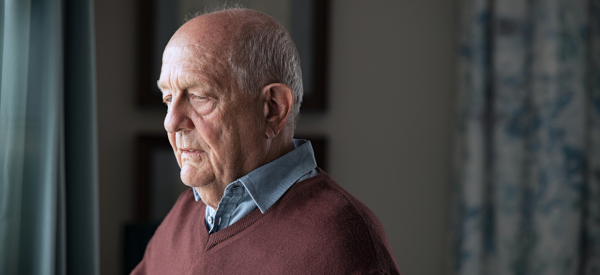When you think about all the things a caregiver does, it can be overwhelming—an ordinary thank you card doesn’t seem to do them justice. The very definition of a caregiver is someone that is constantly “doing for others,” but that doesn’t mean they don’t need something special for themselves every now and then. This month, with National Caregivers Day on February 16, give your caregiver a little extra love. If you’re unsure of how exactly to say “Thank You,” here are a few ways to give back: Deliver A Handwritten Note Expressing your gratitude does not have to be
Read More
Archives for caregiver
A Caregiver Needs Help, Too
Being a caregiver can be physically, mentally and emotionally challenging. If you’re like most people, becoming a caregiver is a role that you may have had to take on without prior notice or warning – placing the health and well-being of a senior parent or other loved one almost solely in your hands. If your family member is not receiving in-home care services, this realization can not only be overwhelming, but daunting, as well. And yet, it’s normal to experience everything from anger and resentment to guilt and helplessness during any part of the caregiving journey. With all of the
Read More
Things to Consider Before Moving Your Elderly Loved One In
There are more people in the U.S. who have taken in an elderly loved one than you might actually imagine. In fact, caring.com says one out of four caregivers live with either an elderly or disabled relative. And if you are in the position where you’ve decided to move an older parent or other family member into your home, there’s a few things that Freedom Home Care lists here that you may want to consider before taking the first step. Financial Advantage or Drawback? You may have to sit down with your family members and think through the costs associated
Read More
How to Handle Bill Paying as a Caregiver
Caring for an older loved one with dementia can sometimes be difficult. But what makes it even more challenging is deciding who will handle the responsibility of your senior’s financial obligations when they’re no longer able to do it themselves. FHC searched and found advice that suggests that starting the financial planning process early not only helps alleviate more stress and fear, but also allows older loved ones the chance to participate in the decision-making at an earlier stage in their diagnosis. Organizations like alz.org that are advocates in the fight against Alzheimer’s, recommend first creating a long-term budget. They
Read More
Questions to Ask Before Hiring a Home Care Agency
Enlisting the help of others to help care for your senior can be a daunting process. And if you opt for more personalized care that meets your loved one’s daily needs, helps them retain a sense of independence, and allows them to remain in a familiar environment, in-home care may be the choice for you. There a number of things to consider when searching for a home health care provider – like if the agency is licensed and reputable, if the caregivers are trained and qualified, and what has their track record for care been in the past. After
Read More
Caregiving on the silver screen, from the oldest-ever Oscar nominee
Yesterday, the folks here at Freedom Home Care gave a much-deserved shout-out to 76-year-old Shirley Bassey, the voice behind multiple James Bond theme songs. Bassey serves as an inspiration not just for seniors, but for all individuals and especially those who are striving to make their way in the competitive field of entertainment. Like Bassey, Emmanuelle Riva, the 86 year old nominated for best actress for her role in the French film, “Amour,” is an inspiration for many, as well. In addition to those in the film industry, those in the field of caregiving consider her a role model. Her
Read More
Understanding age-related vision decline
The signs of aging – if only they didn’t exist. Unfortunately, however, there are many ways in which the body will change as the years progress. Failing vision is just one of many areas where older individuals will experience the signs of aging, and therefore, it is by no means rare. In fact, it’s one of the most common aspects to growing old. Macular degeneration, a progressive eye condition, affects nearly 15 million Americans, and its numbers are growing as Baby Boomers reach their 60s and 70s. According to AMD.org, the website for the Macular Degeneration Partnership, “the disease attacks the
Read More
Reducing time spent in hospitals or rehabilitation facilities
As apparent in its name, the Institute for Healthcare Improvement is focused on improving worldwide health and health care. With much to tackle, the group is concerned about the frequency of readmissions for recently discharged hospital patients. The effort to improve this rate is among the group’s core initiatives. “Hospitalizations account for nearly one-third of the total $2 trillion spent on health care in the United States,” the IHI explains. “In the majority of cases, hospitalization is necessary and appropriate. However, a substantial fraction of all hospitalizations are patients returning to the hospital soon after their previous stay. These rehospitalizations
Read More
Learning about the potential for post-operative cognitive decline
According to Sunnybrook Hospital’s Dr. Beverley Orser, one in three patients will experience post-surgery memory loss. And unfortunate for some, cognitive difficulties can last as long as three months after a procedure has been performed. In the following video, Dr. Orser explains that memory loss is caused by inflammation in the brain and that it may be treatable and reversible, as shown in a recent study. Freedom Home Care, however, understands that later in life, these types of cognitive decline may make the transition back to home even more difficult. And order generic viagra online that’s why we implemented our
Read More
Being aware to take care – identifying the risk factors behind dementia
As we’ve mentioned in past blog posts, dementia and Alzheimer’s disease vary in the sense that one is an effect of the other. Although Alzheimer’s is a disease that to date has no cure, there are many factors that lead to dementia that can be controlled. Some, of those factors, such as being genetically predisposed to Alzheimer’s, can’t be changed. However, there are ways to reduce the chances of experiencing dementia. The Mayo Clinic has multiple suggestions as to how to do so and offered up the following guidelines: Alcohol use. Consuming large amounts of alcohol appears to increase the risk of
Read More




